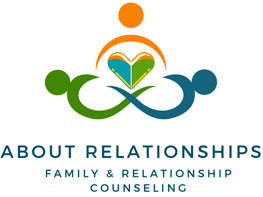3 Myths About Couples Therapy
There are a lot of myths we hear about relationships in couples therapy, but here are 3 of the most common that we would like to address:
The “Conflict means something is wrong. It’s not good to argue. If you argue, you aren’t compatible” Myth
It’s how you HANDLE conflict that determines if it’s good or bad. Without healthy communication about problems, there are no solutions. It’s important that couples can advocate for themselves, have their own opinions, and express themselves in a healthy way to ensure mutual satisfaction and growth! It’s equally as important to be empathetic, validating, and listening to what your partner has to say, even if you don’t agree with their point.
The “I didn’t tell them, but my partner should know (insert your request/preference/idea here). They just don’t care enough. If they loved me, it wouldn’t be a second thought and they would just do it.” Myth
There is no magical way for your partner to know how you think or feel other than noticing your body language + assumptions they will make, which are formed only from their own past experiences in life. Even if these are similar to your own, they are not the same. If you want something, you have to speak it into existence to ensure your needs will be met. Once you make a request, be flexible and empathic to the person on the other end of the request. This is not being needy, demanding, unreasonable or bossy; this is a mature communication skill to ensure you get what you need. Being vulnerable in this way allows you to depend on your partner in a way that allows you to be seen, heard, and validated. If they can’t meet your need, talk about what’s going on and why they are struggling with this.
“It should just be natural; relationships should just flow. There is a perfect partner exactly the way they are for every person” Myth
While compatibility and getting along well is important to healthy relationships, even the best relationships will encounter hard times and challenges. When we enter a partnership, it comes with a set of implicit expectations. When you agree to commit to your person; you ultimately evolve in how you operate, how you spend your time, how you speak to the other person, how you enjoy activities, how you handle responsibilities, etc. There is going to come a time where you do things that feel ‘unnatural’ to you at first. Examples; hanging with a new group of people, seeing someone at their most vulnerable point (like when they pee on the toilet seat, explode the laundry all over your typically ‘organized’ space, or laugh at jokes you just don’t find funny) or when the chemistry starts to sizzle. It’s our choice to take action on those things and talk about them. They take understanding. They take compassion and patience. They take effort. They take commitment. You won’t succeed at work by putting no effort in, your relationship is likewise.

